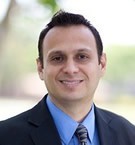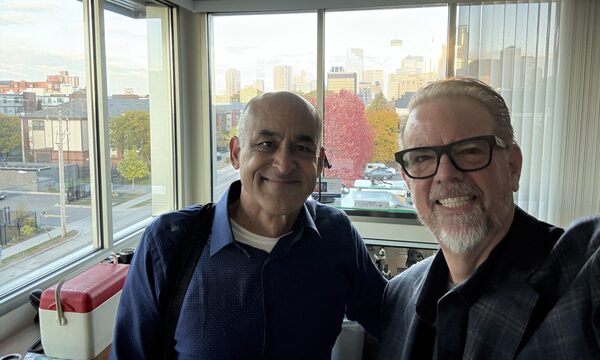This semester I am part of a professors’ reading group about the relationship of economics and Christian theology. We are reading several books and discussing relevant issues regarding a theology of work, stewardship, and economics. Obviously every author and participant has a unique perspective about different topics, but in our group we all come from a position of privilege, especially as we talk about poverty and ways to help those who are less fortunate. We have a tendency to talk about the poor as “they,” as people different from us and not necessarily as peers who can also teach us and lead us into better paths as we immerse in their circumstances and perspectives.
Many years ago a prominent Latin American theologian shared a story that made me think about the importance of considering the viewpoint of others for a better understanding of life and theology. He shared how on one occasion he was teaching a biblical hermeneutics class to a group of church leaders in a South American country. He asked the following question, “what did Jesus mean when he said, “the poor you will always have with you.” Everybody answered in similar ways, “There will always be poor people,” “poverty is a reality of life,” “the poor will always exist and we need to help them,” and so on. However, an old lady shockingly said, “It means that there will always be oppressors who will make us poor!” She was the only one in the class who identified herself as being poor. Therefore, her interpretation differed from the traditional and shed more light on the passage. The point of this story is that our conversation changes when we attempt to see life from the perspective of others, especially those we want to help.
Another example is found in the book The Mystery of Capital: Why Capitalism Triumphs in the West and Fails Everywhere Else. The author, Hernando de Soto, provides a good argument regarding the importance of capital for the economic development of any nation. I think the book implies that every country wants to follow the capitalist system and that the goal for every society is economic wealth. Evidently, all people and societies want freedom and prosperity, but not all of them define that in the same terms. I am afraid both “developed” countries and people who belong to the selected group who enjoys economic bonanza, unconsciously believe everybody else wants to be like them. It is important for people to have all basic needs met, but wealth is not necessarily the most appropriate goal to pursue as the wise Agur reminds us in Proverbs 30:7-9:
Two things I ask of you, Lord;
do not refuse me before I die:Keep falsehood and lies far from me;
give me neither poverty nor riches,
but give me only my daily bread.
Otherwise, I may have too much and disown you
and say, ‘Who is the Lord?’
Or I may become poor and steal,
and so dishonor the name of my God.
Agur reminds us that economic abundance can become an obstacle for enjoying an appropriate relationship with the Lord because he measures success in different terms than we do. In fact, in some circumstances it is better to be poor. Jesus declared during the famous Sermon on the Mount, “Blessed are the poor in spirit, for theirs is the kingdom of heaven” (Matt. 5:3). The poor in spirit are those who know they desperately need God because they are conscious that they don’t have anything to give him in return. These people are blessed because they can enjoy Christ’s kingdom in their lives. Only those who know they are subjects are able to recognize the King and enjoy his rule and kingdom.
God desires to be our only source of well-being. The problem is that we frequently consider our possessions as our refuge and support. The temptation to rely on ourselves and not in the Lord grows as we prosper economically. For this reason, in Matthew 6:24 Jesus said that those who trust in riches cannot serve the Lord, “No one can serve two masters. Either you will hate the one and love the other, or you will be devoted to the one and despise the other. You cannot serve both God and Money.”
The Roman philosopher Seneca argued that the poor is not the one who has little, but the one who wants more. He did not mean that we should not try to improve our lives or be conformist, but that the desire to accumulate more goods produces in us a lack of contentment that reinforces our true poverty. Hebrews 13:5-6, reminds us that avarice is an indication for our insufficient trust in God’s providence, “Keep your lives free from the love of money and be content with what you have, because God has said, ‘Never will I leave you; never will I forsake you.’ So we say with confidence, “The Lord is my helper; I will not be afraid. What can mere mortals do to me?”
The Bible warns us about the momentary satisfaction that material goods bring to us. Our desire for wealth is like pursuing the wind or walking a never-ending path. Proverbs 23:4-5 gives us an advise that we should be wise to follow, “Do not wear yourself out to get rich; do not trust your own cleverness. Cast but a glance at riches, and they are gone, for they will surely sprout wings and fly off to the sky like an eagle.” When our value is based on our material possessions, we never have enough and never find satisfaction.
As followers of Christ we need to be content and grateful for what we have because we recognize that everything good comes from the Lord. We can learn from all people since sometimes those who seem to be poorer are richer than us in many ways. The famous Russian writer Leo Tolstoy (1828-1910) has a great short story, The Czar and The Shirt, which beautifully illustrates this reality:
The Czar, who was very sick, once said: “I will give half of my kingdom to anyone that cures me.” All the wise men met to figure out a way to cure the Czar. No one could come up with an answer. Only one old wise man knew how to cure the sovereign. He said, “If we can find the shirt of a happy man and have the Czar put it on, he will recover his health.”
Feeling hopeful, the Czar dispatched messengers throughout in kingdom in search of a happy man. For many days they traveled over every nook of the kingdom but had no luck. They could not find a completely happy person; it seemed that everyone complained about something. The rich were sick, the healthy were poor, the rich and healthy grumbled about their wives, and the rest had poorly behaved children.
Late one night the Czar’s son was strolling close to a little shack and heard someone saying: “Thank you Lord. I have worked and finished. I have eaten and nourished myself. Now I will go to bed. What else could ask for?” The Czar’s son ordered his soldiers to take the shirt of the man. He promised to give the man money exchange for the shirt, as much money as the man wanted, as long as he could take the shirt to the Czar.
As the Czar’s soldiers arrived at the home of the happy man to take the shirt from him, they were astonished to see that the man was so poor he didn’t even have a shirt.
 Biola University
Biola University



.jpg)